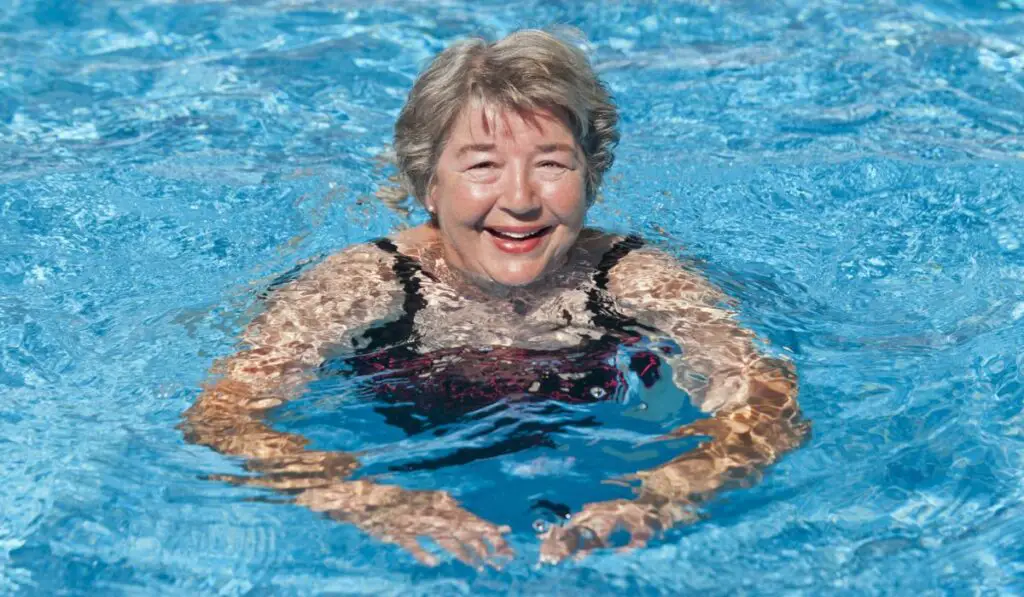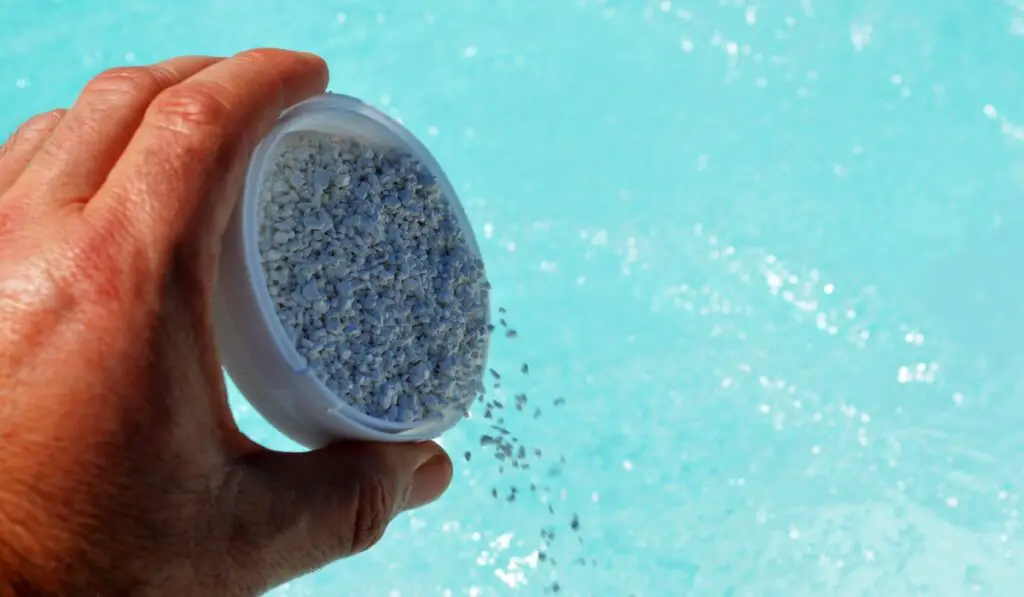Chlorine is incredibly popular because it does the three main things needed to keep a pool clean: it oxidizes, sanitizes, and prevents algae growth. Unfortunately, however, the chemical also reddens eyes, releases a strong odor, and even causes severe allergic reactions in certain swimmers.
Pool chemicals and chlorine, if added correctly, don’t negatively affect your body. However, swimming in an over-chlorinated pool can dry your skin and hair, cause a sore throat, and cause eye irritation. Bromine, ionizers, and ozonators are some good alternatives to chlorine.
It’s important to note that the real danger is not the chlorine itself but how it mixes with other chemicals and contaminants people bring into the pool. Lotions, conditioners, and shampoos interact with chlorine, resulting in volatile organic compounds that are dangerous to inhale. Let’s look at how chlorine affects the human body and whether there are any other alternatives you can opt for to keep yourself safe.
How Does Chlorine in Pools Affect the Human Body?

Too much chlorine can result in severe skin irritation, but the amount usually added in swimming pools isn’t something to worry about. On the other hand, an over-chlorinated swimming pool is a real cause for concern.
Over-chlorinated pools dry out the skin and hair, cause eye irritation, and sometimes even turn color-treated hair into interesting shades of green. For this reason, adding just the right amount of chlorine to your pool is extremely important. Other common symptoms of chlorine exposure include:
- Wheezing
- Cough
- Airway irritation
- Sore throat
- Chest tightness
Excess chlorine in your pool can also release small amounts of vapor, which can trigger asthma. While this side effect isn’t too common, it can still happen in super-chlorinated or freshly chlorinated pools. So, ensure you don’t jump into your pool after chlorinating it and wait a few hours to let those vapors diffuse.
It’s important to note that chlorine gas can also be incredibly poisonous in high concentrations. In fact, the gas was used in World War I as a chemical weapon, and inhaling large amounts of it can build up fluid in the lungs, causing pulmonary edema.
However, remember that the severity of all these health effects depends on the dose, duration, and route of exposure to chlorine.
Are Other Swimming Pool Chemicals Harmful?
Disinfection by-products and other pool chemicals can also harm and cause several diseases and health issues. This is because when you add a pool chemical into the water, it quickly combines with another chemical and changes form.
And sometimes, this results in a completely new chemical that reacts much differently than its precursors.
For instance, trihalomethane (THM) is the most common chlorination by-product, and long-term exposure to it can increase the risk of bladder cancer. In fact, according to a study, swimming in over-chlorinated pools increased bladder cancer risk by a surprising 57%.
It’s important to note that even a moderate concentration of THM can cause upper respiratory and eye irritation. Other symptoms of trihalomethane exposure can also include dry cough, excessive eye tearing, and nose and throat irritation.
Is There an Alternative to Chlorine in a Pool?
While there are several alternatives to chlorine, keep in mind that they’re not complete replacements, and you’ll still need to add a bit of chlorine to your pool. Some of these alternatives include:
Bromine

Bromine (on Amazon) is an excellent sanitizer but is not as good an oxidizer as chlorine. For this reason, most people opt for a hybrid solution, known as BCDMH tablets, to clean their pools. These tablets are usually 27% chlorine and 66% bromine and do the job effectively.
Bromine also remains stable at very high temperatures, making it ideal for use in both spas and swimming pools. It causes less irritation on the mucous membranes than chlorine, but it still produces an odor.
It’s also important to note that bromine is much more expensive than chlorine. Cleaning a pool with bromine will cost twice as much as adding chlorine.
Ionizers
Ionizers charge two dissimilar metals––usually silver (a sanitizer) and copper (an algaecide)––and then send them into the water. Their positive charge attracts germs, algae, and bacteria and turns them into larger compounds that are easily eliminated by the filtration system.
However, ionizers (on Amazon) don’t have an oxidizer, so you’ll need to add a bit of bromine or chlorine to the water to handle the cleaning aspect. But the good news is that ionizers don’t irritate swimmers’ noses and eyes and can significantly reduce the total amount of chlorine needed.
Ionizers need moving water to work, so you’ll have to run your pool pump almost continuously to sanitize your water correctly. Using an ionizer will also increase the level of metal in your pool water, which might stain your pool and turn your fingernail beds and hair green.
Ozonators
An Ozonator (on Amazon) is a machine fixed to the filter’s plumbing line. It sends ozone gas into the water, which then reacts with all the impurities and contaminants in your pool.
Ozone generators reduce chlorine usage by up to 90% and consume the same amount of energy as a 60-watt light bulb when the pump is turned on.
While their additional energy demand is incredibly tiny, they have one disadvantage. Since they run best on dry air, you’ll get a decreased performance if you live in a hot, humid climate.
